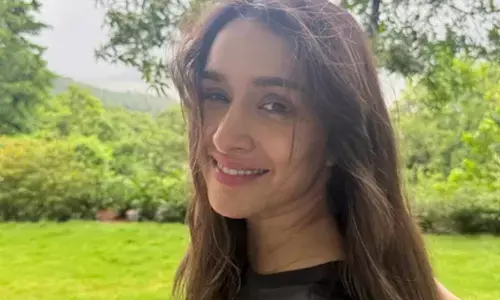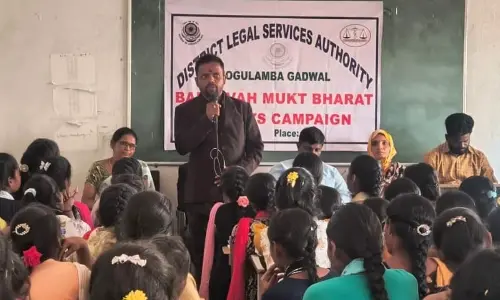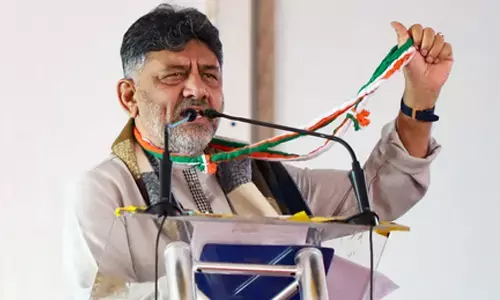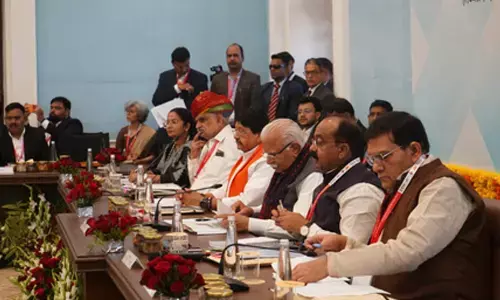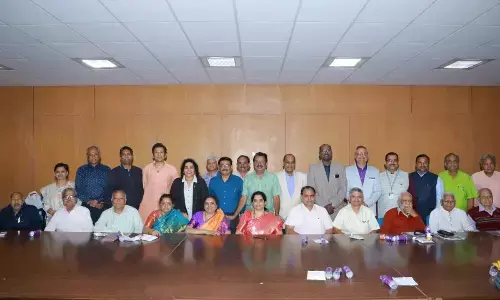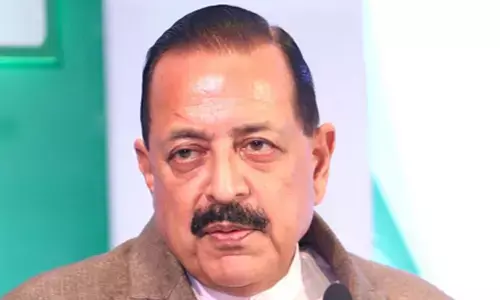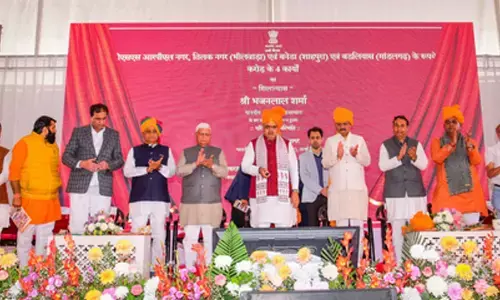India ties: Trump has track of engagements, Harris's record sparse littered with Kashmir statements
Share :
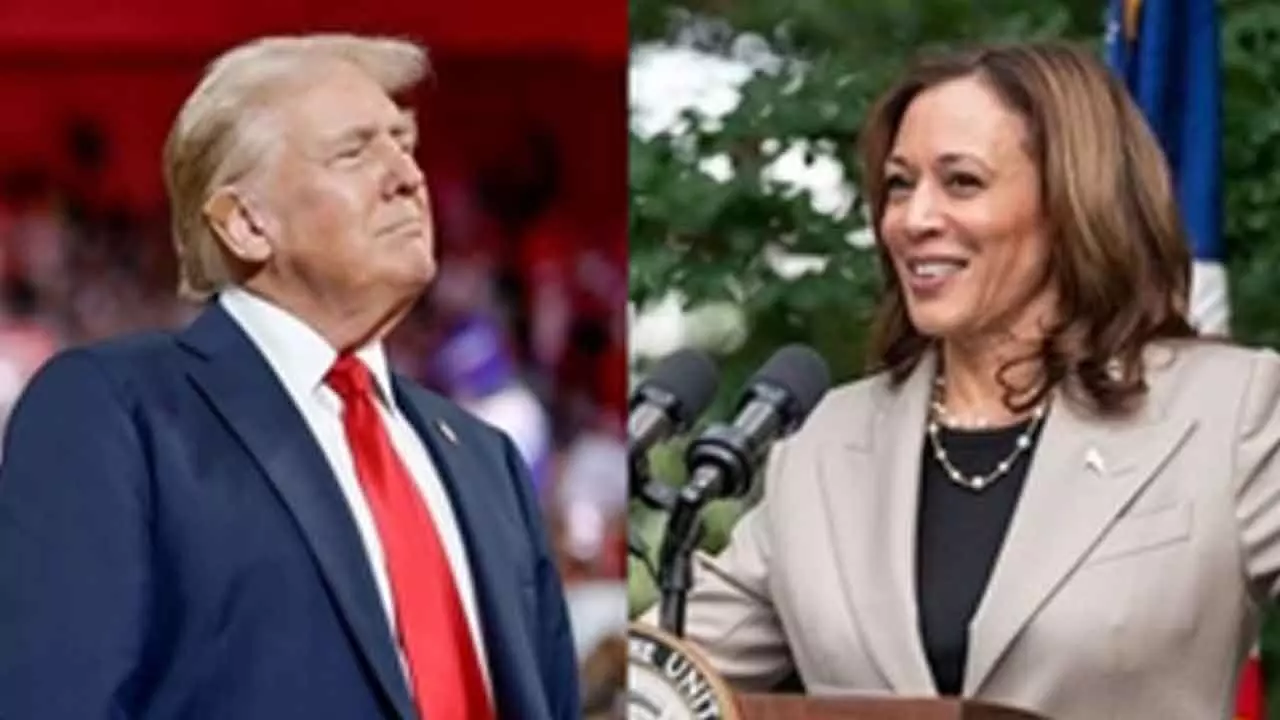
When it comes to ties with India, Republican candidate Donald Trump and Democrat Kamala Harris exhibit a contrasting case. Trump has an established track of interactions before and during his presidency with India, Kamala Harris, despite having Indian roots, has a sparse record, including a threat of intervention in Kashmir.
Regardless of who takes the White House, relations between the two countries will fundamentally be governed by the ironclad realities of geopolitics, which made Harris tone down her remarks about India.
While campaigning for the presidential nomination in 2019, Harris threatened intervention in Kashmir, but it didn’t surface after she became vice president.
As vice president, she initially hectored PM Modi on human rights but changed her tone later.
Trump and PM Modi built a personal connection, and the former president continues to be effusive in praising PM Modi, saying “he’s fantastic” and wanted to meet him last month, although scheduling conflicts prevented it.
In a Diwali post on X on Thursday, Trump wrote, "Under my administration, we will also strengthen our great partnership with India and my good friend, Prime Minister Modi.”
During the Trump presidency, PM Modi showed off their friendship at a Houston rally and a cricket stadium in Ahmedabad during the 2020 election cycle that had a whiff of electoral bias
But given the reality of geopolitics, this had no impact on President Joe Biden's administration, and the ties at national and personal levels continued given India’s position in the emerging geopolitical matrix where China has emerged as a challenge to the US.
Last year, Biden hosted a lavish state visit by PM Modi with pomp and show at the White House.
Relations with Harris started icy as she lectured PM Modi on human rights during his 2021 visit for a summit of the Quad -- the group that also includes Australia and Japan. PM Modi snubbed her with a boycott of her meeting with the Quad leaders. But last year during PM Modi’s visit, she hosted a luncheon for him, and both exuded friendliness.
At the policy level, Trump turned the focus to the Indo-Pacific region where China is emerging as a threat to the US and its allies and reinforced the emerging Washington view of India as a counterweight to China and a strategic partner.
Trump resurrected the Quad and Biden picked that up and elevated the Quad to the level of a summit of national leaders.
His administration also tried to extend India’s role by floating a similar group with Israel and the United Arab Emirates.
The cooperation in defence has also been enhanced with joint manufacturing initiatives like the one for making GE Aerospace’s F414 engines in India and can be expected to continue under Harris.
While Trump can be expected to be interested in military cooperation, defence manufacturing in India would put PM Modi’s Make in India policy on a collision course with his Make in America.
That will also be a factor in other areas like silicon chips and solar panels where the Biden administration has committed to helping India, and with PM Modi's plans to make India a global manufacturing hub.
Like manufacturing, trade will be an area of conflict for India and the US under Trump.
He has threatened stiff tariffs on imports, especially as retribution for high tariffs imposed by other countries.
During his term, he singled out the customs duties on Harley motorcycles and whiskey from Kentucky and cancelled the Generalised Scheme of Preferences concessions for some imports from India.
In his recent campaign speech praising PM Modi, he called India a “very big abuser” in the trade realm and he can be expected to continue the confrontation in trade.
In foreign policy, Trump’s backing for India in regard to China was strengthened under Biden, and Harris will likely be locked into it.
India’s close relations with Russia have been a thorn in relations with the US under Biden as New Delhi makes a tight-rope walk on Ukraine and continues to buy oil from Moscow.
The Biden administration has taken a tolerant attitude because of the China factor, amid criticism of India’s Russia ties.
At least from what he has said so far, Trump’s policy could be less binary on Ukraine, giving India more breathing room.
Trump is less of a multilateralist, adopting a transactional approach freeing him to try to develop relations outside the web of alliances, as he tried unsuccessfully with North Korea.
To an extent, his approach matches India’s of developing ties independent of each other.
Trump maintained relations with Pakistan at the highest level, meeting with former Prime Minister Imran Khan, but Biden froze out Islamabad’s top leadership.
Trump’s unpredictability came into play when he offered to mediate between India and Pakistan, although the two countries had agreed that their disputes were bilateral matters to be dealt with without third-party involvement.
While a senator and running for the Democratic Party’s presidential nomination, Harris spoke of a “need to intervene” in Kashmir.
“We have to remind the Kashmiris that they are not alone in the world. We are keeping track of the situation. There is a need to intervene if the situation demands,” said Harris.
She also said her concern about human rights in Kashmir “is about reminding people that they are not alone and that we are all watching” and she characterised India as an abuser.
She also criticised External Affairs Minister S. Jaishankar for refusing to meet with Representative Pramila Jayapal, a critic of India.
But those were from when she was running for the nomination as the voice of the Left.
Although she has disowned some of those Leftist policy lines like open borders as she moved to the centre for the election, she has been silent on her previous statements on Kashmir.
The Biden-Harris campaign in 2020 issued a communal manifesto for Muslims which said, “Indian government should take all necessary steps to restore rights for all the people of Kashmir”.
That could be interpreted in the context of the abrogation of Article 370 of the Constitution removing Kashmir's special status.
After his election he was silent on it – another instance of the realities of office overwhelming campaign rhetoric.
Harris concentrated on domestic issues during her Senate term and only the Select Intelligence Committee membership had an international bearing.
That is also true of the vice presidency and the current campaign leaving a scanty record of international affairs.
A constant worry with Trump is his unpredictability and his penchant for grand gestures unbound conventional interpretations of geopolitics.
Sudden destabilising lurches in the Middle East or even in Asia by him could be possible.
At the moment, the biggest issue between the US and India is the alleged murder-for-hire plot against Kalistan leader Gurpatwant Singh Pannun.
The Justice Department has filed charges against a former RAW officer Vikash Yadav, and while there has been no formal extradition request, the Federal Bureau of Investigation (FBI) declared him a wanted person and circulated posters for his capture.
US ally Canada has claimed that the chain of command in the plots targeting Khalistanis goes higher.
The Biden administration has taken a relatively low-key approach compared to Canada, but it will continue to be an irritant in India-US relations and could balloon in a Harris administration.
Under Trump, who is skeptical of the Justice Department and the FBI because of the treatment he received at their hands, there is a possibility of flexibility in dealing with the case.







